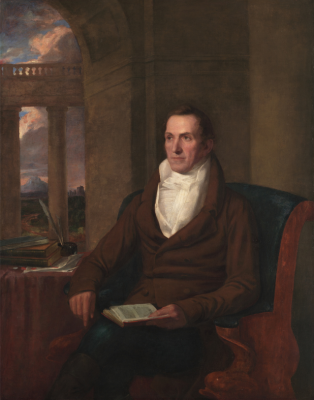
What is William Wordsworth known for?
William Wordsworth was one of the founders of English Romanticism. He is remembered as a poet who always emphasised on the importance of Nature to a person’s intellectual and spiritual development. He was a fierce advocate of using the vocabulary and speech patterns of common people in poetry. The son of John and Ann Cookson Wordsworth, William was born on April 7, 1770, in Cockermouth, Cumberland, located in the Lake District of England.
Wordsworth began writing poetry as a young boy in a grammar school. Before graduating from St. John’s College, he went on a walking tour of Europe, which deepened his love for Nature and his sympathy for the common man. He is best known for Lyrical Ballads, which he co-wrote with Samuel Taylor Coleridge, and The Prelude, a Romantic epic poem that chronicles the ‘growth of a poet’s mind.
It was with the publication of Lyrical Ballads in 1798 to great acclaim that the Romantic Movement in poetry was born.
Romanticism
This European intellectual movement gained traction across art, music and literature in the 18th Century.
Romanticism is best understood as a reaction to the birth of the modern world and its key features such as industrialisation, secularisation, and consumerism. It simply refers to the birth of a new set of ideas.
This era was thematically characterised by individualism and spirituality, an enhanced appreciation of the beauty of Nature and an exaltation of emotion over reason.
Literature from this time was preoccupied with the idea of conflict between oneself and society.
Wordsworth: A Nature poet
In the “Preface” to the second edition of Lyrical Ballads published in 1800, Wordsworth described poetry as “the spontaneous overflow of powerful feelings,” which became the manifesto of the English Romantic movement.
His poetry returns to the simplistic image of Nature as the base. Throughout his works, he laid emphasis on the noble impact of the natural world on mankind. From the highest mountain to the simplest flower according to him, the natural world inspired passionate emotions in those who observe them.
To him Nature was a source of joy and solace. The same is exemplified by the following lines from his poem Daffodils:
“For oft, when on my couch I lie
In vacant or in pensive mood,
They flash upon that inward eye
Which is the bliss of solitude;
And then my heart with pleasure fills,
And dances with the daffodils.”
Celebrations in place
7th April 2020 marked the 250th birth anniversary of Wordsworth. This significant occasion is being commemorated nationwide and internationally with celebrations of the poet’s life, work, and legacy.
The project, Wordsworth 250, got delayed because of the COVID-19 pandemic. His descendants have come up with a range of celebrations to mark the poet’s birth anniversary in the Lake District.
With the aim to build a living archive of the poet’s writing, the public was asked to send in recorded recitations of their favourite Wordsworth poems.
What initially started as a family memorial turned into a global celebration of the poet’s legacy as a host of actors and celebrities joined forces and participated in the celebration.
A record of youth
An undergraduate at St John’s College, Cambridge from 1787 to 1791, Wordsworth is arguably the College’s most famous alumnus. An exhibition was held to honour his memory at his alma mater. It showcased items from the Library’s Wordsworth Collection, which included portraits and artefacts as well as his signed manuscripts and printed books. Here one could view the poet’s face (as cast from life by artist Benjamin Robert Haydon) and his breakfast tea cup which was a gift from his art patron Sir George Beaumont, alongside letters to his eminent contemporaries and first-edition copies of his greatest works.
Cumbria Festival Chorus
Cumbria Festival Chorus and Orchestracelebrated the occasion with a concert featuring two new choral commissions by local composers, both based on Wordsworth’s poetry: “Child of the Clouds” by Roland Fudge, based on The River Duddon Sonnets, and “Influence of Natural Objects” by Jonathan Millican, based on the poem by the same name. The programme was complemented by the British composer Gerald Finzi’s performance of the poet’s Intimations of Immortality.
Is he still relevant?
Wordsworth’s genius was his reaction to the changing time and the developing modernity. His work highlighted the loss of innocence that accompanied the Industrial and technological revolutions. His words lament the disrupted bond between Nature and mankind, emphasising the need to look inward. His accessible poetry challenged the traditional poetic diction by grounding itself in the rustic life of the countryside.
Literary critics praise his analysis of the cultural practices of the time and credit him with laying the foundation for media theory and the modern cultural discourse.
Picture Credit : Google




